2024 Primary Election Candidates qualifying comes to close for ALGOP and ADP
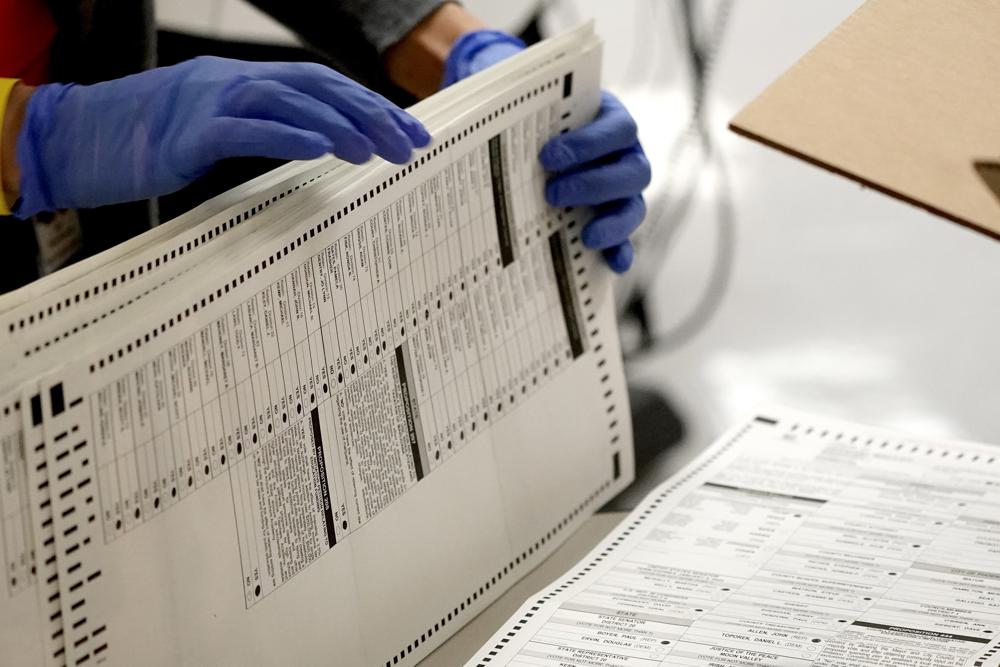
Qualifying has ended for those wishing to appear on primary ballots in the 2024 election. According to the Secretary of State’s website, the primary election will be held on March 5, 2024. For races that require a runoff, those will be held on April 16, 2024. Runoffs occur in races with three or more candidates when neither of the top two candidates get more than 50% of the vote. According to Alabama state statute (Section 17-13-5), “All candidates for nomination to public office or for election to party office in the primary election provided for in this chapter shall file their declaration of candidacy with the state party chair if they seek any federal, state, circuit, or district office, or the state Senate, House of Representatives, or any other office that is not a county office not later than 5:00 P.M. 116 days before the date of the primary election. All candidates for nomination or election to a county office shall file their declaration with the county party chair not later than 5:00 P.M. 116 days before the date of the primary election.” The Alabama Republican Party list can be found on their website here, and the Alabama Democrats complete list can be found here. There are several races to watch in this primary election. In the newly drawn congressional districts, districts one and two are of interest for different reasons. Two Republican incumbent congressmen will face off for the newly drawn Congressional District One, with Barry Moore and Jerry Carl seeking the seat. In Congressional District Two, multiple candidates qualified on each party. See below for the full list. Democrat Candidates for CD2: Republican Candidates for CD2: Follow Alabama Today for ongoing coverage of the 2024 primary season.
Mike Rogers to Chinese President Xi Jinping: “U.S. will not be intimidated”
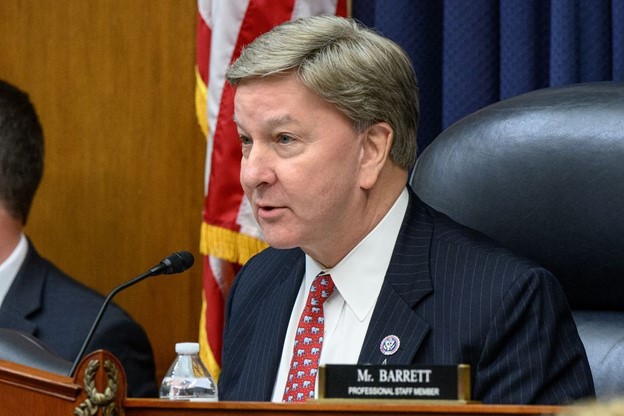
Last week, the White House announced that President Joe Biden (D) will meet with Chinese President Xi Jinping face-to-face in San Franciso this week. On Monday, Congressman Mike Rogers (R-AL03) released a statement ahead of the meeting saying, “Xi needs to understand that the United States will not be intimidated.” Rogers is the Chairman of the House Armed Services Committee. “President Biden needs to clearly lay out the steep consequences China will face if their aggressive behavior in the South China Sea continues. Xi needs to understand that the United States will not be intimidated, and we will continue to support our allies and partners in the Indo-Pacific,” Rogers said. “President Biden must also stand up for our military’s ability to freely operate in the South China Sea – China’s dangerous harassment of our pilots and sailors needs to come to an end.” The two world leaders previously met in Bali, Indonesia. “We spent a lot of time together and — back in the days when we were both vice presidents, and it’s just great to see you,” Biden said to Xi when the two previously met in Bali. “And you and I have had a number of candid and useful conversations over the years and since I became President as well. You were kind enough to call me to congratulate me, and I congratulate you as well. And I believe there’s little substitute, though, for — to face-to-face discussions.” “As the leaders of our two nations, we share a responsibility, in my view, to show that China and the United States can manage our differences, prevent competition from becoming anything ever near conflict, and to find ways to work together on urgent global issues that require our mutual cooperation,” Biden continued. “And I believe this is critical for the sake of our two countries and the international community.” “The world expects, I believe, China and the United States to play key roles in addressing global challenges, from climate changes to food insecurity, and to — for us to be able to work together,” Biden said. “The United States stands ready to do just that — work with you — if that’s what you desire. So, President Xi, I look forward to our continuing and ongoing open and honest dialogue we’ve always had. And I thank you for the opportunity.” “Since you assumed the presidency, we have maintained communication via video conferences, phone calls, and letters,” Xi told Biden through an interpreter. “But none of them can really substitute for face-to-face exchanges. And today, we finally have this face-to-face meeting. From the initial contact and the establishment of diplomatic relations to today, China and the United States have gone through 50-plus eventful years. We have gained experience, and we’ve also learned lessons.” “As leaders of the two major countries, we need to chart the right course for the China-U.S. relationship,” Xi continued. “We need to find the right direction for the bilateral relationship going forward and elevate the relationship. A statesman should think about and know where to lead his country. He should also think about and know how to get along with other countries and the wider world.” Rogers represents Alabama’s Third Congressional District. To connect with the author of this story or to comment, email brandonmreporter@gmail.com.
Less driving but more deaths: Spike in traffic fatalities puzzles lawmakers

by Tim Henderson, Alabama Reflector November 11, 2023 This story was originally published on Stateline. Traffic deaths are lingering near historic highs in most states despite less driving overall, prompting policymakers to consider deploying more police or installing automated monitoring such as speed cameras to curb speeding and reckless driving. People are driving fewer miles than they were in 2019, but more are dying on roadways. Traffic deaths spiked 18% from 2019 to 2022 — though miles traveled fell 3%, according to a Stateline analysis of federal records from the National Highway Traffic Safety Administration and the U.S. Bureau of Transportation Statistics. Experts blame bad driving habits that took hold when roadways suddenly cleared out as the COVID-19 pandemic started in 2020. At the same time, law enforcement agencies shifted their priorities away from traffic violations, and many struggled to hire officers amid heightened scrutiny and criticism, especially after a police officer killed George Floyd in May 2020 in Minneapolis. States and cities are trying to reduce the number of deaths caused by risky driving with a mix of more police officers and controversial technologies such as speed and red-light cameras. But many critics see those approaches as potentially troublesome since traffic tickets are a heavier financial burden on low-income drivers. And others say cameras violate people’s privacy and right to due process. “Law enforcement has really stepped back from enforcing traffic laws,” said Jonathan Adkins, CEO of the Governors Highway Safety Association. “We have to get police back out there and get support for police back. But this has to be done the right way, and it has to be done fairly. And we do want to look at technology — cameras don’t see race, they don’t see gender.” The nation’s two most populous states, California and Texas, have taken different paths. In October, California approved a speed camera pilot program, to begin next year. Texas hasn’t reconsidered its 2019 ban on local speed and red-light cameras, but state transportation officials have asked local police to step up ticketing. Police in Fort Worth ramped up enforcement in response to residents’ complaints about reckless drivers, according to press reports, writing 12,000 tickets for speeding and careless driving between November 2022 and April 2023. Traffic deaths were up 18% in California and 24% in Texas between 2019 and 2022, the latest full year available from the National Highway Traffic Safety Administration. In Washington state, traffic fatalities were up 38% last year compared with 2019, reaching a 30-year high. In response, the state is considering expanding its limited-speed camera use. State officials plan a visit to Finland next month to see how that country used automated enforcement to reduce traffic deaths. “When people see a sign, ‘Speed Camera Ahead,’ they slow down,” Gov. Jay Inslee, a Democrat, said in a June interview with the Washington State Standard. Nationally, most of the change in fatal accidents has been caused by speeding, careless driving and drug or alcohol use, according to federal Fatality Analysis Reporting System data from 2019 to 2021, the latest year available from that source. Driver deaths increased the most in that time, 21%. Deaths of pedestrians and motorcyclists rose by 18%, and bicyclist deaths by 12%. Most of the increase from 2019 to 2022 has been in cities, suburbs, and small towns, with rural areas less affected, according to separate federal statistics on deaths caused by traffic accidents kept by the federal Centers for Disease Control and Prevention. Our driving behavior didn’t go back to normal. We have to learn to share the roads, and absent that we have to have better engineering and more enforcement out there, unfortunately. – Jonathan Adkins, CEO, Governors Highway Safety Association Vermont, which has been struggling to fill police jobs, saw the largest percentage increase of any state from 2019 to 2022, a 64% jump from 47 to 77 deaths. Other states with large percentage increases included Connecticut (54%), New Hampshire (47%), the District of Columbia (39%), and Washington state (38%). In Alabama, traffic deaths rose from 930 in 2019 to 989 in 2022, a 6% increase. Traffic accidents are the most common cause of death for people under 40 in Arkansas, Nebraska and Texas, according to a September Stateline analysis. The only states to see a decrease in traffic deaths from 2019 to 2022 were Wyoming (down 9%), Rhode Island (down 5%), North Dakota (down 3%) and Idaho (down 2%). Those four states did see increases in the first six months of 2023, however, compared with 2022. About half of Wyoming’s fatal crashes in 2022 involved speeding or failure to wear seat belts, according to a state report. Legislative efforts In California, speed camera legislation has been stymied in the past by disagreements over fines and impacts on residents with low incomes. The compromise bill, as enacted in October, will allow community service in lieu of fines for low-income drivers who are ticketed in the pilot program, and limit the placement of cameras to streets with speeding issues in a handful of cities. Adkins, the CEO of the governors’ safety group, said other states should be similarly cautious. “You have to be really careful with these camera programs. We don’t want cameras to be a ‘gotcha,’” Adkins said. “They should only be in areas that have a problem.” Another state considering more speed cameras is Pennsylvania, where a pilot program put speed cameras on one street in Philadelphia and in work zones statewide. A bill to make the program permanent and expand it within Philadelphia passed the state House and is now pending in a state Senate committee. Pennsylvania’s traffic fatalities increased 12% from 2019 to 2022, according to the Stateline analysis. In Philadelphia, speed cameras cut fatal accidents in half, saving an estimated 36 lives, and reduced speeding by 95% after they were introduced in 2020 on the 14-mile stretch of Roosevelt Boulevard, a main artery, according to city records obtained by Stateline. Cameras detected 8,305 speeders in February 2023
John Kilpatrick and Vets Recover are on a mission to help Alabama’s veterans

John Kilpatrick didn’t just return to Alabama because it’s home – he came back to improve the lives of veterans in the state. Born in Mobile, Kilpatrick joined the United States Marine Corps straight out of high school and has served in the military for the past 37 years. It was through his own recovery that he knew he needed to help others like him. “After Desert Storm, I struggled with a lot of post-war stuff, like a lot of soldiers and Marines do,” he said. “I found myself addicted to alcohol. In 1996 I got sober and have been sober ever since. But in the process of trying to help the next person find recovery, I got really frustrated that there was nowhere to get help, especially for veterans.” After Kilpatrick reached sobriety, he went into the Army Reserve and served as a Medical Service Corps officer for almost 28 years. During an 18-month tour at the Pentagon, he worked on the Army substance use program and realized that the clinical approach to treating addiction didn’t align with his personal recovery experience. Instead of merely complaining about it, he decided to start Vets Recover, which offers specialized integrated care for veterans. “I thought that there had to be some way to connect what I call ‘street-smart recovery’ with what the theories and the doctors and the textbooks were saying,” he said. “And so that’s what we really set out to do with Vets Recover. We’re combining the science and medical practice with our own personal experience in recovery.” To bring his vision to life, Kilpatrick assembled a team of experts who were also veterans. They built the program with an emphasis on having a supportive community in which veterans could connect through their lived experiences and hold each other accountable. Since the outpatient clinic opened in November 2018, Vets Recover has served about 1,500 veterans, first responders, and family members. It’s also met the standard to be a certified community behavioral health clinic, which combines primary care, mental health, and addiction and substance use treatment all in one place. The Alabama Power Foundation is among the organization’s supporters. From the very beginning of Vets Recover, Kilpatrick recognized the need and set a goal of building an inpatient detox and treatment facility. Construction is underway for a Vets Recover residential treatment center, which Kilpatrick says is on track to open by the end of 2023. When he’s not working, Kilpatrick spends his time on the water and with his family. We recently asked him to talk more about his love for his home state. This is Alabama: Why was it important to have Vets Recover in Alabama? John Kilpatrick: We have one of the highest concentrations of veterans in the country. A lot of people don’t know that Alabama’s home to almost 400,000 veterans. You know, only about one-third of one percent of [the U.S.] population serves in the military. You’ve got a pretty small population of people who have some very unique experiences, and if you don’t understand that culture, it’s really difficult to connect. So, what Vets Recover sets out to do is provide a facility staffed by experts who have military cultural competency in order to effectively treat veterans. In Mobile, the key unmet need is a detox and residential treatment center. We don’t have a detox facility south of Birmingham in our state. That’s for anyone, not just veterans, but for anyone. It’s been an urgent unmet need in our community for 20-plus years. A tour of the new inpatient facility brought community leaders and stakeholders together. From left, Stephen McNair, historic preservation consultant; Ben Cummings, Cummings Architecture Firm; Keysha Brown, city of Mobile Mayor’s Office; John Kilpatrick, Vets Recover; and Sissy Louise Moore, Alabama Department of Veterans Affairs. (Vets Recover) TIA: Tell us about an Alabamian who inspires you and why. Kilpatrick: Will Kimbrough. I don’t know if you know Will, but he’s a singer-songwriter who grew up in Mobile and had a band in the ’90s called Will and The Bushmen. They had a couple of hits and then kind of just drifted off a little bit. But he has become a prolific songwriter and has written songs for Jimmy Buffett and Emmylou Harris. I was on active duty with the Army Reserve. I’m still serving, soon to retire in November. But I was at Camp Atterbury, Indiana, which is in the middle of nowhere. Just by chance, I looked at Facebook, and I saw that Will Kimbrough was playing in Edinburgh, Indiana, which is about 30 minutes away. So I grabbed an Army buddy, and we decided to go down to this music festival where Will and another musician, Grayson Capps from Fairhope, were playing at this music festival. And, you know, I think the thing that is so special about Will is that he is completely Alabama. He sings about it. He writes about it. He talks about it. And the other thing that is really special about him and how I’ve kind of gotten to know him over the years is, he does this program where he uses songwriting to help veterans recover from post-traumatic stress. Songwriting is the perfect outlet for someone to get all this angst and garbage that’s inside of us from experiencing these horrific situations. It is the perfect method to get that out. And I think it’s just really special that a guy from Mobile, Alabama, is able to exist at this level in the entertainment industry, make a living, singing and songwriting, but then take that gift and bring it to help veterans heal from trauma of war. I think that’s just really special. TIA: What is your favorite part about living in Alabama? Kilpatrick: Well, it’s home. And I have a lot of family here. But for me, I think it’s access to the water. Fish, sail, scuba dive, take my kids boating, and pull a tube in a circle for days and hours. You know, pretty much anything on the water is enjoyable to me. TIA: What’s
Sen. Tim Scott ends candidacy, exits GOP presidential primary
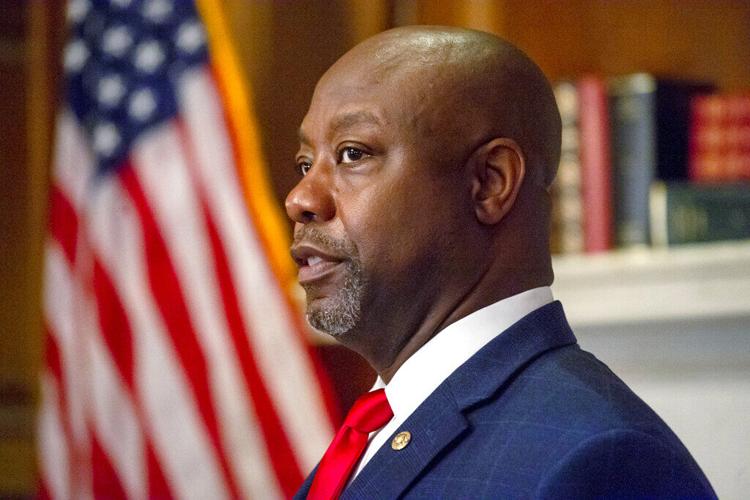
U.S. Sen. Tim Scott suspended his 2024 campaign for president late Sunday, just days after falling short of making a big impression in the third Republican presidential debate in Miami. Scott, of South Carolina, announced his departure from the race on Fox News and said he would not be endorsing any of his former GOP primary opponents. “The best for me to be helpful is to not weigh in,” he told Fox’s “Sunday Night in America.” Scott has lagged in the polls, receiving just 2% support in the latest The Center Square Voters’ Voice Poll. Former President Donald Trump holds a huge lead in that poll, as he has in polling for months. Scott’s exit comes just about two weeks after former Vice President Mike Pence also dropped out of the race. Florida Gov. Ron DeSantis and former U.S. Ambassador and South Carolina Gov. Nikki Haley are a distant second and third behind Trump in The Center Square poll. Republished with the permission of The Center Square.
AGs to Biden administration: Revoke student visas for supporting ‘terrorists’
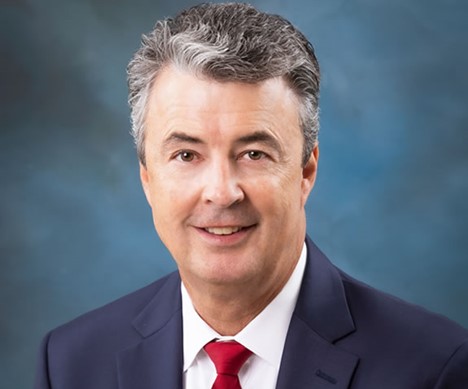
By Kim Jarrett | The Center Square Twenty attorneys general are asking the Biden administration to revoke student visas for anyone suspected of supporting terrorism. The five-page letter sent Wednesday to Secretary of State Antony Blinken and Homeland Security Security Alejandro Mayorkas specifically refers to recent pro-Palestine protests on college campuses. “For example, the national chapter of a group calling itself Students for Justice in Palestine described Hamas’s attack as ‘a historic win for the Palestinian resistance,’” the letter said. “SJP issued a ‘call to action’ asking its college chapters to demonstrate, and more than 20 chapters responded, spearheading anti-Israel activity on campuses across the country. That group is linked to Hamas and Palestinian Islamic Jihad.” The students’ activity may put their immigration status in question, they said. “As state attorneys general, we are concerned that foreign students admitted to colleges in the United States on student visas may be supporting terrorist activity through membership in SJP and are ineligible to hold a student visa under the Immigration and Nationality Act,” the letter said. Arkansas Attorney General Tim Griffin, the letter’s lead author, said providing material support for a terrorist act is a class Y felony in his state. A class Y felony carries a sentence of 10 to 40 years in prison, according to the Arkansas code. “Additionally, Act 710 of 2017 prohibits the state from contracting with, or investing in, companies that boycott Israel,” Griffin said. “The Eighth Circuit Court of Appeals rejected an ACLU-led challenge to that law by a 9-1 margin, and earlier this year, the U.S. Supreme Court declined to overturn that ruling.” The attorneys general are taking a giant leap, Joe Cohn, legislative and policy director for the Foundation for Individual Rights and Expression, said in an interview with The Center Square. “There needs to be actual evidence of providing material support and that had to beyond just expressing ideological agreement because that would be protected under the First Amendment,” Cohn said. The U.S. Supreme Court weighed in on the issue twice. “In a case called Bridges vs. Wixon, the Supreme Court said, ‘Freedom of speech and press is accorded aliens residing in the country,’” Cohn said. “And in a 1953 case called Chew vs. Colding, it said, ‘The Bill of Rights is a futile authority for the alien seeking admission for the first time to these shores. But once an alien lawfully enters and resides within our country, it becomes invested with the rights guaranteed by the Constitution to all people within our borders.’” The Department of Homeland Security did not return a message from The Center Square. The attorneys general of Alabama, Alaska, Florida, Georgia, Idaho, Indiana, Iowa, Kansas, Louisiana, Mississippi, Missouri, Montana, Nebraska, Oklahoma, South Carolina, Texas, Utah, Virginia and West Virginia signed the letter. Republished with the permission of The Center Square.
21 candidates qualify to run in Congressional District 2

Alabama’s Second Congressional District race was already crowded, but by the time major party qualifying ended on Friday at 5:00 p.m., a total of 21 candidates had qualified with the Alabama Democratic Party and the Alabama Republican Party. The Congressional District 2 (CD2) seat is an open seat because the court-appointed special master redrew Alabama’s congressional districts in such a way that two incumbents, Barry Moore (R-Enterprise) and Jerry Carl (R-Enterprise), now live in the same district – Alabama’s First Congressional District. While Moore and Carl battle over which one gets to remain in Congress, CD2 is open with no incumbent. Since the rules for Congressional Districts do not require you to live in the district you are running, politicians from all over Alabama are running for this seat. Thirteen candidates qualified to run in CD2 with the Alabama Democratic Party. Retired Marine and 2020 congressional candidate James Averhart from Mobile qualified. So did State Representative Napoleon Bracy Jr. Bracy represents Prichard. He works for Austal. State Senator Merika Coleman from Jefferson County qualified. Coleman represents Birmingham, Bessemer, and Pleasant Grove. State Representative Anthony Daniels from Huntsville is running for the seat. Daniels is the House Minority Leader. Shomari Figures works in Washington, D.C., for Attorney General Merrick Garland but is originally from Mobile. His parents are State Senator Vivian Figures and the late State Senator Michael Figures (both of Mobile). He has worked for President Barack Obama. Brian Gary is a general surgeon at Jackson Hospital. State Representative Juandalynn Givan represents Birmingham and Forestdale in Jefferson County. Givan is a Jefferson County attorney. State Representative Jeremy Gray represents Lee and Russell Counties in the Legislature. He is the House Minority Whip. Phyllis Harvey-Hall was the Democratic nominee for CD2 in 2022 and 2020. She lost both times to Barry Moore. Willie J. Lenard is a resident of Opelika. Vimal Patel is a successful hotelier, commercial real estate investor, and realtor. He was a candidate in the Democratic primary in 2022 but lost to Harvey-Hall. Larry Darnell Simpson is a musician. Darryl “Sink” Sinkfield is an ASU alum and supporter. Eight Republicans have qualified. State Senator Greg Albritton of Atmore is an attorney. The retired naval officer is currently the House Finance & Taxation General Fund Committee chairman. Dick Brewbaker is a former Montgomery area automobile dealer. The Pike Road resident is a former state senator who served two terms from 2010 to 2018. Caroleene Dobson is a real estate attorney and a former rodeo standout. She serves on the Alabama Forestry Commission and Southeast Livestock Exposition. Karla M. DuPriest is a former candidate for U.S. Senate. She is a longtime congressional staffer who currently runs a popular barbecue restaurant in Mobile. Wallace Gilberry is a former University of Alabama football player who has played for multiple NFL teams. Hampton S. Harris has also qualified for the post. Stacey T. Shepperson qualified on Friday afternoon, right before the close of GOP qualifying. Belinda Thomas serves on the Newton City Council in Dale County. Both major party primaries are on March 5. If necessary, the primary runoff elections will be held on April 16. The eventual Republican and Democratic nominees will then face each other a year from now in the 2024 general election on November 5. The new district lines mean that Congressional District 2 has shifted from being a safe Republican seat to a likely Democratic seat. Given the razor-thin Republican majority in the House of Representatives, this district flipping to the Democrats could help swing control of Congress to the Democrats. To connect with the author of this story or to comment, email brandonmreporter@gmail.com.
Hanceville Mayor Kenneth Nail indicted on 15 counts of felony ethics violations
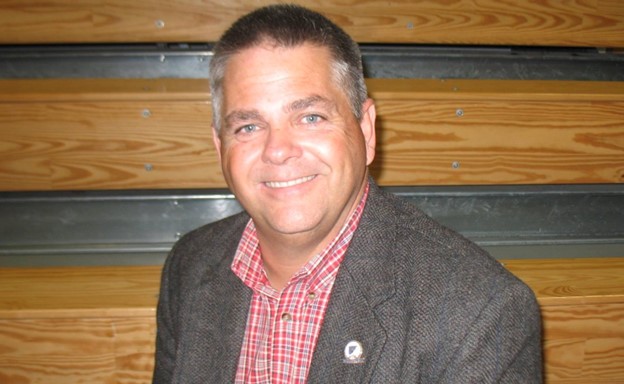
A Cullman County grand jury has indicted Hanceville Mayor Kenneth Nail on 15 counts of using his office for personal gain. Nall has served as Mayor of the small Cullman County town since 2008. Champ Crocker is the Cullman County District Attorney. Crocker said that he is limited on the amount of information that he can release at this time. “However, as a matter of public policy and good government — elected officials are entrusted to perform their duties honestly and above reproach,” Crocker stated. “When that bond of trust is broken, our society suffers limitless harm.” Crocker asked anyone who had any information regarding any possible corruption to contact the Alabama Ethics Commission or the Alabama Attorney General’s Office. “My office — working with our state partners — is committed to ensuring that the violators of the public trust be held accountable under the law,” Crocker said. The indictments are presumed to be related to a matter that the Alabama Ethics Commission referred to the Cullman County District Attorney’s Office in August. According to court documents, Nail is accused of soliciting both Hanceville Police Chief Bob Long and police officer Josh Howell (now Hanceville’s police chief) to perform work on Nail’s home while Chief Long and Officer Howell were on duty. He is also accused of soliciting a city employee, Steve Gunn, to travel to Haleyville in a city-owned vehicle “to pick up lumber and other supplies and to haul the materials on Nail’s trailer to Nail’s residence, while [Gunn was] on duty as a city employee.” He is accused of soliciting a city employee to travel out of state for a private event for Nail. Nail is also accused of using an on-duty city employee for personal tasks. Court documents also stated that Nail used three former inmates to perform work on his home. Following the indictments, Nail was booked at the Cullman County Detention Area and then released on $150,000 bond ($10,000 per count). A class B felony carries a potential sentence of between 2 and 20 years a fine of up to $50,000 per count. A grand jury indictment just means that the jurors believe that there is evidence that a crime may have occurred. Mayor Nail has not yet had a chance to present his defense. Nail, like all accused persons, is presumed to be innocent until he is found guilty by a jury of his peers. To connect with the author of this story or to comment, email brandonmreporter@gmail.com
Inflation remains top issue for voters ahead of 2024 election

Voters have their eyes on their bottom line ahead of the 2024 election. Voters are more concerned about inflation now than they were over the summer, even though most metrics for inflation have eased. Inflation peaked at 9.1% in June 2022 and stood at 3.7% in September 2023. The inflation rate remains above the Fed’s 2% target. Still, it remains the top issue among voters and is certain to shape the 2024 presidential race. “Inflation makes people miserable, and it’s a key weakness for [President Joe] Biden,” said David Byler, chief of research at Noble Predictive Insights. “But voters tend to judge presidents on short-term economic trends. If the economy feels better to them by this time next year, that will help Biden hugely. But if people keep feeling the pain of high prices, he could be in real trouble.” Inflation has squeezed the budgets of American families as prices for food, fuel, housing, and other staples have increased. The Center Square Voters’ Voice Poll, conducted in conjunction with Noble Predictive Insights, found that 48% of registered voters picked inflation as the top issue from a list of 18. That was followed by illegal immigration (33%), crime/violence (28%), and economy/jobs (24%). Those numbers are similar to what The Center Square Voters’ Voice Poll found in a summer poll conducted July 31-Aug. 3. In that case, inflation topped the list with (44%), followed by crime/violence (27%) and illegal immigration (25%). The polling shows voter’s concerns about those issues have grown since then, with worries about illegal immigration overtaking crime/violence. “Inflation might be slowing down, but that doesn’t mean prices have decreased,” Byler said. “If people still feel like they’re paying too much for essentials like groceries or gas, then they’re going to be unhappy about the economy. And when they take a poll, they’re going to mark inflation as a key pain point.” The poll of 2,605 voters included 1,035 Republicans, 1,074 Democrats, and 496 true Independents, among the most comprehensive in the country. The poll also showed that 95% of registered voters said they have seen prices increase over the last few years, with 5% saying they have seen no change. Among those who reported seeing price increases, 96% said the cost of groceries had increased, and 82% said the cost of gasoline had increased. Another 74% said their utility bills had increased. The poll was conducted by Noble Predictive Insights from Oct. 20-26 with a margin of error of 1.92%. Republished with the permission of The Center Square.
Dr. Diane Counce presents experience with long COVID
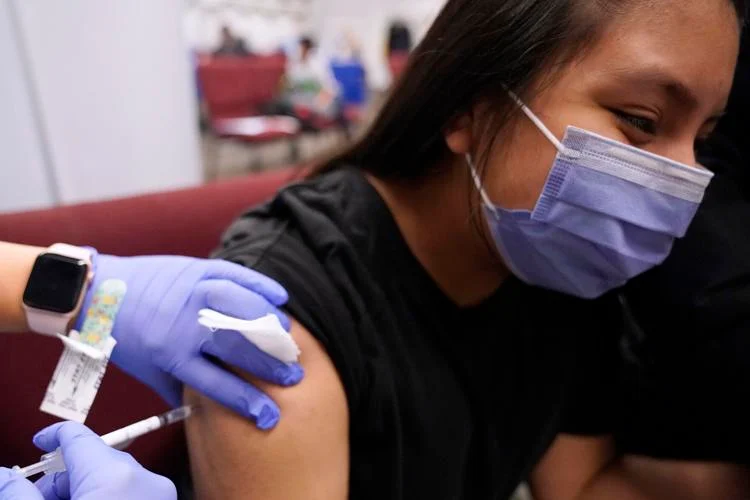
On Tuesday, Dr. Diane Counce spoke at the Mountain Brook Public Library to the Over the Mountain Chapter of Alabama Eagle Forum about her experiences treating patients suffering from long COVID. Counce is a neurologist who practices in the Birmingham area. Dr. Counce said that she treats people who had a bout of COVID-19 and continued to show symptoms weeks and even months after the infection. She also treats people who believe their symptoms are due to the COVID-19 vaccine. “Unfortunately, we see a lot of neurological problems with both the virus and the vaccine,” Dr. Counce said. Counce explained that the spike protein in COVID-19 interacts with the ACE-2 receptors found in over 72 tissues in the body. It is a mRNA vaccine. With long COVID, “one in five or one in seven are still having symptoms 28 days later,” Counce said. “203 symptoms have been documented. The average long COVID patient has 56 symptoms over nine organ symptoms. 86% would relapse when physically or psychologically stressed.” “The Science Journal confirmed that vaccines are linked to autoimmune disorders,” Counce stated. Counce said that symptoms of long COVID can also include blood clotting and heart myopathy. “The German Ministry of Health has said that long vaccine injury is a real issue,” Counce said. “People are spending lots of money treating this,” Counce said. “Insurance won’t pay for it because they don’t believe in it.” “Pfizer, as of February 2021, knew,” Counce said, citing Pfizer’s own data that has since been made public. “Cardiac issues occur about 40 days after the vaccine,” Counce said. “Neurological symptoms can turn up 100 days later. One hundred ninety-five days is about the average for neurological symptoms to occur.” Counce explained that the spike protein can easily cross the blood-brain barrier through the bone marrow. Symptoms include malaise, lethargy, microclotting, and GI issues. Treatments include ivermectin, intermittent fasting, N-acetyl cysteine, Vitamin C, Vitamin D, MagTen, and a low histamine diet. Counce said that for patients with clotting issues, she has tried Eliquis + Plavix + aspirin, natokinase, serrapeptase, lumbrokinase, neprionol, and vascyzyme. Dr. Counce recommended a clean diet: no seed oil, no canola, and no processed foods. “On the length of time of treatment, we don’t know,” Counce said. There have been cases where the patients relapsed after treatments stopped. Counce said that common neurological symptoms of long-term COVID or vaccine injury include brain fog, Bell’s palsy, and cognitive impairment. “These people are showing up at my clinic that are as though they have had Parkinson’s for five years, and it has just shown up,” Counce said, Counce said that long-term COVID can bring on the onset of muscular sclerosis. Counce said that scans of some of her patient’s brains show a depletion of the grey matter and/or diffuse grey matter atrophy. Long Covid can also worsen the condition of dementia patients. Dr. Counce recommended Dr. Jordan Vaughn at Med-Health 280 and Dr. Stewart Tankersley if you have long COVID or may be suffering from a vaccine injury. Dr. Counce’s views are a minority opinion within the medical establishment. The Centers for Disease Control and Prevention (CDC) and the Alabama Department of Public Health still recommend that every person six months of age and older receive the COVID-19 vaccine and receive booster shots twice yearly. “The Advisory Committee of Immunization Practices has approved updated 2023-24 COVID-19 vaccines for all Americans 6 months and older who have not received a vaccine in the past two months,” ADPH wrote in a recent press release. “Vaccination remains the best protection against COVID-19-related hospitalization and death. Vaccination also reduces the chance of suffering the effects of Long COVID, which can develop during or following acute infection and last for an extended time. The updated mRNA vaccines are produced by Moderna and Pfizer-BioNTech. An updated Novavax vaccine has been authorized and should be available soon.” There are presently 14,863 known active COVID-19 cases in the state of Alabama. Since 2020, 21,138 Alabamians have died from COVID-19. 1,659,936 people in Alabama have contracted COVID-19. The actual number is likely higher as many people either had mild symptoms or suffered through it at home without seeking medical treatment. To connect with the author of this story or to comment, email brandonmreporter@gmail.com.


